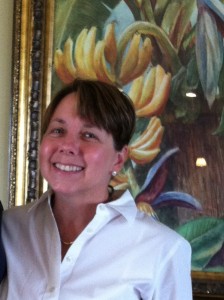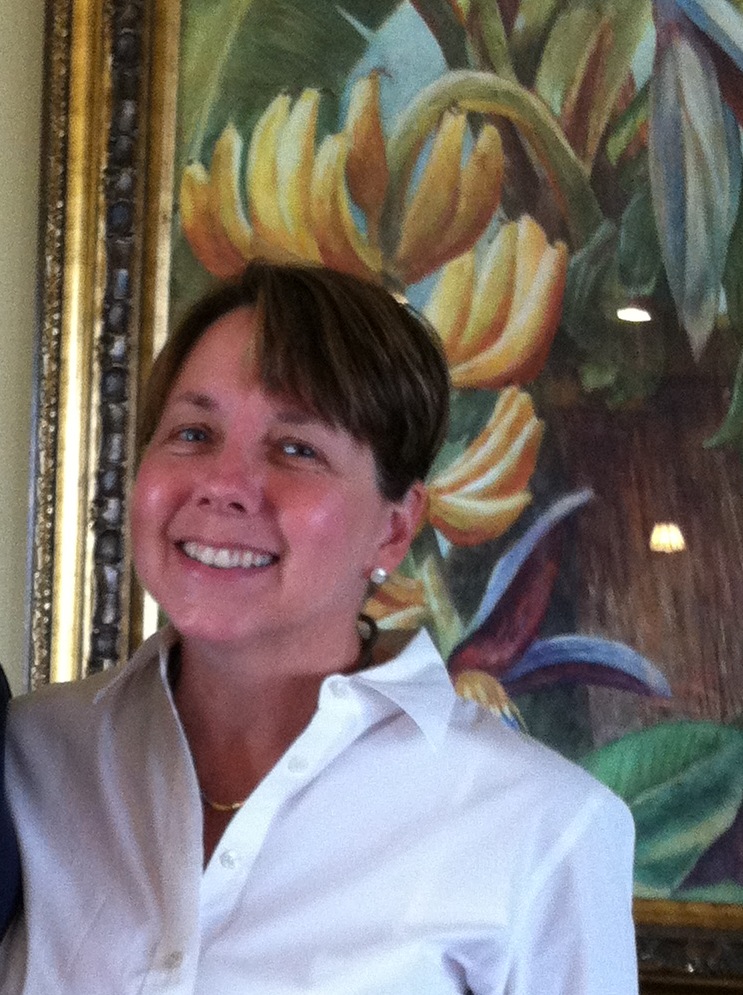Churches Starting Churches – Jan Edmiston
 Read “Who Would Have Thought?”
Read “Who Would Have Thought?”
Read “A Risky Invitation”
In 2007, the congregation I served nested a new church for people who would never cross the threshold of a traditional congregation. It was a long time coming. Several of us had talked about doing this for many years.
The new nested church closed within five years. Why? There are many reasons perhaps, but the bottom line is that the traditonal service never understood the purpose of the new congregation.
Traditional Church Elder: When are the 6:30 pm church people going to start worshipping with the real church at 11am?
Me: Never.
Traditional Church Elder: Then why are we doing it?
I believe that the best way to start new congregations is through established congregations. But most established congregations do not understand why in the world they would start a new church when:
• They worry about their own presence in the community, much less their own survival.
• They still see themselves in competition with other churches – not understanding that 1) we are on the same team and 2) our competition is the golf course, the coffee shop, and the travel soccer team – not the church across the street.
• They don’t realize that making disciples is not about them; it’s about expanding the kingdom of God.
One of the huge barriers to starting new churches is our current churches. I used to imagine that we could plant a new church across the street from an established church and it would thrive. It would not “take away from” the church across the street if it focussed on a totally different demographic. But our established churches do not understand why they would start and support a new spiritual community.
There is a huge paradigm shift in our future, if we believe that we can plant new congregations.
One of the most creative churches I know has hired an associate pastor whose job is to plant a new church comprised of people who would never worship in their traditional church context. In that particular traditional church, the youngest member is 59 years old. There are no children, no young families in the congregation, even though there are many children and young families in the neighborhood. The new associate pastor has been called to do something new outside the church building – meeting in homes and coffee shops and libraries and schools in order to connect with young families who have never been “church people.” The hope is that a new community will be planted that will reach those who would never join the traditional church.
This is one way to plant a new congregation, but it will work only if:
• The traditional congregation can relinquish control of any new church they start.
• The traditional congregation will accept and celebrate the fact that the new church will not add to their own numbers and coffers.
• The new congregation embraces the fact that this is not about them; it’s about making disciples of all nations.
The greatest hindrance to starting new churches, I believe, is our own misunderstanding of our purpose and calling. We are not called to perpetuate institutions. We are called to make disciples.
The wealthiest congregations of our denominations should each start a new church every year.
Why aren’t we doing this?
Jan Edmiston pastored churches in upstate NY and the DC area for 27 years before serving on the staff of The Presbytery of Chicago. Her life is now spent helping churches make the shift to become 21st Century congregations. She happily sticks her hand in the crazy, while also writing and speaking on new church development, emerging church, and healthy congregations. Her blog is A Church for Starving Artists, http://achurchforstarvingartists.wordpress.com/
She’s also the spouse of one and the mom of three. And she is a fabulous baker.


Pingback: Churches Starting Churches � Jan Edmiston | Ecclesio.com | Church Growth
Pingback: Churches Starting Churches – Jan Edmiston | Ecclesio.com |
I’m serving as an interim at church near where I live. They are good people. Love ’em. Enjoy their company.
One of the 80+ year old men started right off telling me not to preach to the choir. He’d tell me this just about every time he’d see me. I assured him I had no plans to preach to the choir.
I knew he meant preach in order to bring new people into the church.
After about five months of hearing this, I finally said to him. I’ll stop preaching to the choir when you are ready to give up your same seat in the pew each week, remove the pews, put chairs in the sanctuary, take out the pulpit, and bring in video screens and a jazz sextet (my musical preference.)
The cultural shift is a tough one. It is because cultural practices have replaced relationships in many churches. As a result, the church becomes a private chapel for weekly religious observance. I keep thinking that the paradigm that we must change looks like the family in Brideshead Revisited, the 70’s version, not the latest one. Religious faith become a private family affair, that imprisoned them in obligations to observance, and not freedom to love and serve Christ. It wasn’t something that they shared outside the family. Even the local priest served as their private chaplain. (If you are familiar with Visconti’s The Leopard, the same thing is shown.)
One of the most important things I heard at the NEXT Church conference, came in a one-to-one conversation. Our friend, Jay Sanderford, shared with me about the importance that he has found in his church of helping people be able to talk publicly about their faith. We used to call them testimonies. It was a very provocative thought. It was because I realized that Jay was right. That when church members have not developed the capacity to tell their faith story, then have not developed the capacity to listen to other people’s stories. As a result, all that matters is the pastor’s representation as spiritual archetype. I’m no paragon of spiritual life. That’s for sure. However, I can stand on my feet and talk, which presents the illusion of spiritual authority.
So, to make this paradigm shift,I think we have to help people come to know how to have a public voice to their faith experience, so that they can identify with those whose testimony is different from theirs. I think my choir would agree.
Saturday night coffee house begun in 2003 soon celebrating ten years and going forward — in addition to two services Sunday morning and separate spiritual growth hour for adults and children.